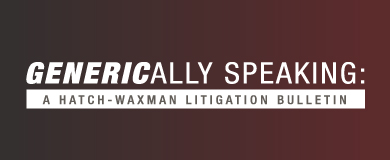- Acumen Powered by Robins Kaplan LLP®
- Affirmative Recovery
- American Indian Law and Policy
- Antitrust and Trade Regulation
- Appellate Advocacy and Guidance
- Business Litigation
- Civil Rights and Police Misconduct
- Class Action Litigation
- Commercial/Project Finance and Real Estate
- Corporate Governance and Special Situations
- Corporate Restructuring and Bankruptcy
- Domestic and International Arbitration
- Entertainment and Media Litigation
- Health Care Litigation
- Insurance and Catastrophic Loss
- Intellectual Property and Technology Litigation
- Mass Tort Attorneys
- Medical Malpractice Attorneys
- Personal Injury Attorneys
- Telecommunications Litigation and Arbitration
- Wealth Planning, Administration, and Fiduciary Disputes
Acumen Powered by Robins Kaplan LLP®
Ediscovery, Applied Science and Economics, and Litigation Support Solutions
-
April 23, 2024David Martinez Recognized Among Top 100 Lawyers in Los Angeles by LA Business Journal
-
April 15, 2024Robins Kaplan Named to 2024 BTI Client Service A-Team
-
April 9, 2024Robins Kaplan LLP Files Complaint Against Social Media Giants Meta, Snap, TikTok on Behalf of Spirit Lake Nation, Menominee Indian Tribe of Wisconsin
-
April 30, 2024Navigating Generational Dynamics
-
May 2-3, 2024ACI Advanced Forum on Managed Care Disputes and Litigation
-
May 6, 2024Litigating with the Legends
-
March 2024e-Commerce: Pitfalls and Protections
-
March 22, 2024‘In re Cellect’:
-
March 14, 2024How Many Cases Have You Tried to a Verdict?
-
September 16, 2022Uber Company Systems Compromised by Widespread Cyber Hack
-
September 15, 2022US Averts Rail Workers Strike With Last-Minute Tentative Deal
-
September 14, 2022Hotter-Than-Expected August Inflation Prompts Massive Wall Street Selloff
Find additional firm contact information for press inquiries.
Find resources to help navigate legal and business complexities.
Encore Dermatology Inc. v. Glenmark Pharms. Ltd.
Impoyz® (clobetasol)
December 22, 2020

Case Name: Encore Dermatology Inc. v. Glenmark Pharms. Ltd., Civ. No. 20-02509 (KM) (ESK), 2020 WL 7586958 (D.N.J. Dec. 22, 2020) (McNulty, J.)
Drug Product and Patent(s)-in-Suit: Impoyz® (clobetasol); U.S. Patent No. 9,956,231 (“the ’231 patent”)
Nature of Case and Issue(s) Presented: Encore owns the ’231 patent, which claims “[a] topical pharmaceutical composition comprising: clobetasol … wherein the composition is … propylene glycol-free.” Encore also holds an NDA for Impoyz, which uses the patented drug. Glenmark filed an ANDA seeking approval of a generic clobetasol cream. Glenmark disclosed to Encore in its Paragraph IV Notice Letter that its proposed ANDA product contained 10% propylene glycol, and therefore argued that its product did not infringe the ’231 patent. Glenmark only provided Encore with access to a limited portion of its ANDA. In turn, Encore argued it was not able to fully understand the safety of the proposed ANDA product if it indeed contained propylene glycol. Encore brought suit under 271(e)(2) claiming a “good faith basis” to question Glenmark’s assertions. Glenmark moved to dismiss under Fed. R. Civ. P. 12(b)(6), which the court denied.
Why Encore Prevailed: In denying Glenmark’s motion to dismiss, the court held that: (i) dismissal of the asserted claims required claim construction of disputed terms; and (ii) Encore’s good-faith basis to question the ANDA raised a plausible right to relief.
The court explained that the claim term “propylene glycol-free” needed to be construed. Either the term meant that the composition was completely free of propylene glycol, or as Encore proposed, “free of an amount of propylene glycol that would be unsafe.” Encore argued that the specification of the ’231 patent provided a reasonable basis for the latter construction. Thus, the court explained that at this early stage, where the court must afford a claim term is broadest possible construction, it was not possible to determine on the pleadings whether Glenmark’s proposed product infringed.
Next, the court explained that under the Twombly/Iqbal standard, the complaint alleged “enough fact[s] to raise a reasonable expectation that discovery will reveal evidence to support” Encore’s allegation of infringement. The court acknowledged Glenmark’s argument that under Federal Circuit precedent, the focus of the infringement inquiry should be on the product described in the ANDA where the ANDA directly addresses the issue of infringement. But the court further explained that Encore was not required to prove its case at this stage and the purpose of 271(e)(2) litigation was “in effect, to determine whether the Paragraph IV certification is erroneous.”
The court further stated that it was “swayed” by Encore’s argument that Glenmark had only provided limited information about its proposed ANDA product. Thus, discovery may reveal additional information important to the infringement question.
Related Professionals
Christopher A. Pinahs
Partner
Related Publications
Related News
If you are interested in having us represent you, you should call us so we can determine whether the matter is one for which we are willing or able to accept professional responsibility. We will not make this determination by e-mail communication. The telephone numbers and addresses for our offices are listed on this page. We reserve the right to decline any representation. We may be required to decline representation if it would create a conflict of interest with our other clients.
By accepting these terms, you are confirming that you have read and understood this important notice.
